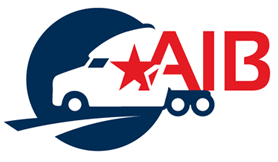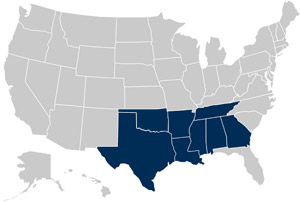Types of Heavy Truck Insurance
Driving is always a risk, regardless of the vehicle you operate, but heavy trucks can be even more dangerous. From blind spots to bulky cargo, there’s a lot that can go wrong. When your vehicle is your way of making a living, it’s important to protect it. These types of commercial truck insurance can give you peace of mind wherever and whenever you hit the road.
Commercial Liability
General liability insurance for heavy trucks is the most basic coverage available. It can help pay for property damage or medical bills for others if you cause an accident. In some cases, it may even cover your legal defense costs if someone sues you after an accident.
Physical damage
Physical damage insurance protects your truck in case of a crash, fire, or theft. In some cases, natural disasters will also be under this umbrella of coverage.
Cargo
When it comes to commercial truck insurance, freight is one of the most important pieces of the puzzle. Drivers and fleets alike need this coverage for cargo that is lost, damaged, or stolen. Find a plan that provides protection in the event of a fire, collision, or striking of a load.
Equipment insurance
If you use a flatbed trailer, you probably have ramps, chains, and tarps. All of this equipment is necessary for you to do your job, but it’s also costly. Coverage for these items can help you purchase replacements in the event that something is damaged or stolen.
Medical payments
This type of coverage, also known as MedPay, will activate if you sustain an injury in an accident while you are on the job. Serious injuries can lead to mounting medical bills, which makes this a critical part of any heavy truck insurance policy.
Non-Trucking Liability
Non-trucking liability insurance, sometimes referred to as bobtail insurance, is crucial for drivers who use their trucks for non-business, personal use while not under dispatch. This coverage fills the gap when you’re driving your truck without a trailer for personal reasons and therefore not covered by primary liability insurance.
It’s an essential layer of protection that safeguards drivers against the financial implications of an accident occurring during these off-duty periods. Whether you’re heading to the shop for maintenance or running personal errands, non-trucking liability ensures that you’re covered every mile of the way.
Owner-Operator Insurance
For owner-operators, having comprehensive insurance coverage is not just a requirement but a cornerstone of their business’s financial security. Owner-operator insurance is a bundle of policies designed to cover the myriad of risks faced by independent truckers.
This package typically includes basic insurance for trucks. You have the option to add additional coverage such as cargo insurance, passenger accident insurance, and downtime coverage. This allows you to customize your insurance plan to better suit your needs.
Whether you’re leased to a motor carrier or operate under your own authority, the right owner-operator insurance plan can protect your assets and livelihood against unexpected events, ensuring that your business keeps moving forward no matter what happens on the road.
Uninsured motorist
An accident with someone who is uninsured or underinsured can be incredibly stressful. This coverage helps pay for medical bills, damages, lost wages, and pain and suffering for you and your passengers.
Motor truck general liability
If something happens that isn’t directly related to driving, this type of coverage will kick in. Due to the nature of the job, most of these instances are related to loading and unloading cargo.
Workers’ compensation
Commonly referred to as workers’ comp, this is a mandatory form of insurance that nearly every type of business requires. It may cover medical costs and a portion of lost wages for employees who are injured on the job. In addition, it may protect companies from lawsuits relating to workplace conditions.










